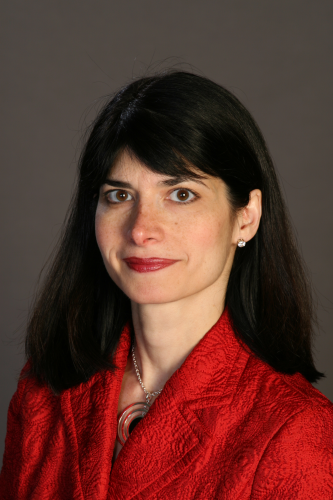Oct 21, 2009
DePaul University Experts Available to Comment on H1N1 (Swine) Flu
DePaul University Experts Available to Comment on H1N1 (Swine) Flu
DePaul University, the largest Catholic university in the United States, has faculty experts available to discuss the various aspects of the H1N1 flu outbreak, including infectious diseases, impact of immigration patterns on its spread, public health policy, the sociology of health, and media portrayals of health issues and health communications.
Professors available to speak with reporters are:
Nanette Elster, director of the Health Law Institute, College of Law. Elster has a background in legal issues involving public health preparedness and wrote an article for the Centers for Disease Control and Prevention on lessons learned from the SARS outbreak several years ago. She has a master of public health degree and has spoken internationally on issues of public health preparedness. “In a public health emergency what is important is communication, credibility, collaboration and cooperation.” She can be reached at 312-362-5236 or nelster@depaul.edu.
Phil Funk, associate professor, biology. His areas of expertise are infectious diseases, the body's recognition of and reaction to disease, the development of the immune system, prevention of disease transmission and immune reactions to influenza strain A. He has taught classes in immunology, microbiology and the biology of infection. “The challenge here will be developing a vaccine that combats the swine, bird and human flu viruses combined.” He can be reached at 773-325-4649 or pfunk@depaul.edu.
Paula Kagan, R.N., assistant professor, Department of Nursing. Kagan can discuss the virus and the potential for an epidemic or pandemic, prevention, epidemiology, a historical perspective on influenza outbreaks, discuss Chicago as a location at risk and what people can do as they are confronted with news in this developing story. “People need to be encouraged to stay home if they are sick and we need to create a culture of health promotion.” Kagan can be reached at 773-325-7630 or pkagan@depaul.edu.
Teresa Mastin, associate professor, College of Communication. Mastin can discuss health communication and media portrayals of health issues related to disadvantaged, vulnerable populations. “The frenzied manner in which swine flu is being addressed can be a positive in that everyone has their radar tuned to the issue. Thus, crisis situations can be used to educate and reinforce basic health messages that people tend to filter out on a daily basis because they are so familiar.” Mastin can be reached at 773-325-2964 or tmastin@depaul.edu.
Susan Poslusny, chair, Department of Nursing. A community and public health expert, Poslusny encourages citizens to heed the Centers for Disease Control (CDC) reports, noting that the average person stricken with the swine flu will not need medication as the virus runs its course. She suggests using alcohol-based hand sanitizers to clean hands frequently and to stay home if the flu strikes. “It’s important to allay fears. The swine flu likely will not be nearly as deadly in the United States as it has been in Mexico. However, the very young, very old and anyone who is immune-compromised are at increased risk and should take extra precautions.” She can be reached at 773-325-7281 or sposlusn@depaul.edu.
Barbara Radner, Director, Polk Bros. Center for Urban Education. She can discuss how schools factor into the public health alert system and can help parents and children understand what to do in such situations. “Schools have a critical role in preventing illness. Teachers and administrators are aware of this problem and are working to communicate to students and parents about how to respond to this challenge. Schools have a big job not only teaching children the content and skills they need but how to stay healthy. It's a hidden but vital part of every school’s curriculum.” She can be reached at 312-362-5155 or bradner@depaul.edu.

Nanette Elster
